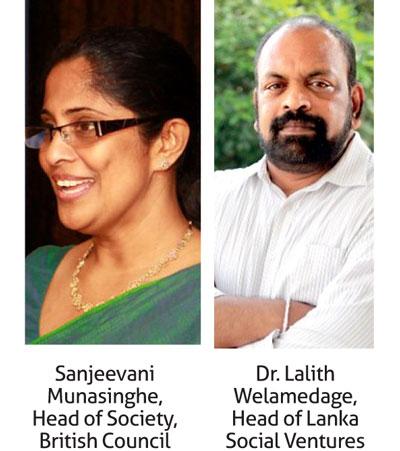Reply To:
Name - Reply Comment
The ‘Enterprise’ project is funded by the European Union and implemented by Care Germany in partnership with British Counciland Chrysalis.
 It aims to contribute to improved socio-economic wellbeing of rural and estate communities through supporting entrepreneurism to strengthen rural livelihoods. The project is implemented in Badulla, Monaragala, Matale, and Nuwara Eliya districts in the Uva and Central provinces.
It aims to contribute to improved socio-economic wellbeing of rural and estate communities through supporting entrepreneurism to strengthen rural livelihoods. The project is implemented in Badulla, Monaragala, Matale, and Nuwara Eliya districts in the Uva and Central provinces.
The British Council’s contribution to this project includes introducing, popularising and capacity building in enterprise intermediaries. These interventions will lead to positive social change through innovative and effective business models that tackle social and environmental issues and contribute to sustainable development. The program also focuses on empowering rural women to become entrepreneurs,providing them with the opportunity to earn a sustainable revenue while managing family responsibilities.
Dr. Lalith Welamedage, who leads Lanka Social Ventures, an organisation which works closely with the British Council in delivering project activities said,“Social entrepreneurship concept is gaining its footing in Sri Lanka slowly but steadily, intending to empower individuals, families, and communities to engage in economic activities with positive social and environment impacts.
Not just solely for profit generation, but with concern and passion for the society, its people, the environment as a whole in which they operate. This concept is the primary distinction that the social enterprise business model makes, compared to the standard business model. As a result, all business activities are linked with the social and/ or environmental impact in tandem with their commercial objectives, with many businesses allocating a portion of their profit to resolving social and environmental issues.”
In this last phase of the project, several activities have been planned to ensure sustainability of the achievements over the past three years. These activities will include working with a selectedgroup of government employees and civil society organizations to help them strengthen their technical skills. This step will equip them to provide advice, assist communities, and continue the work they have begun. It will ensure that the overall concept is not lost even after the project concludes.